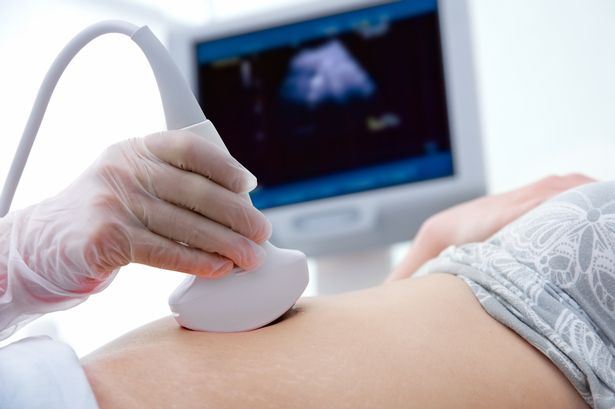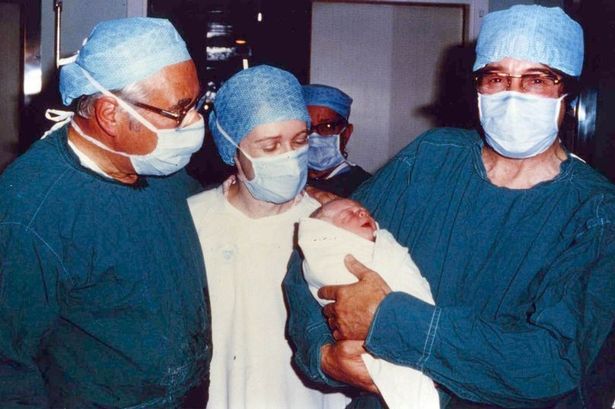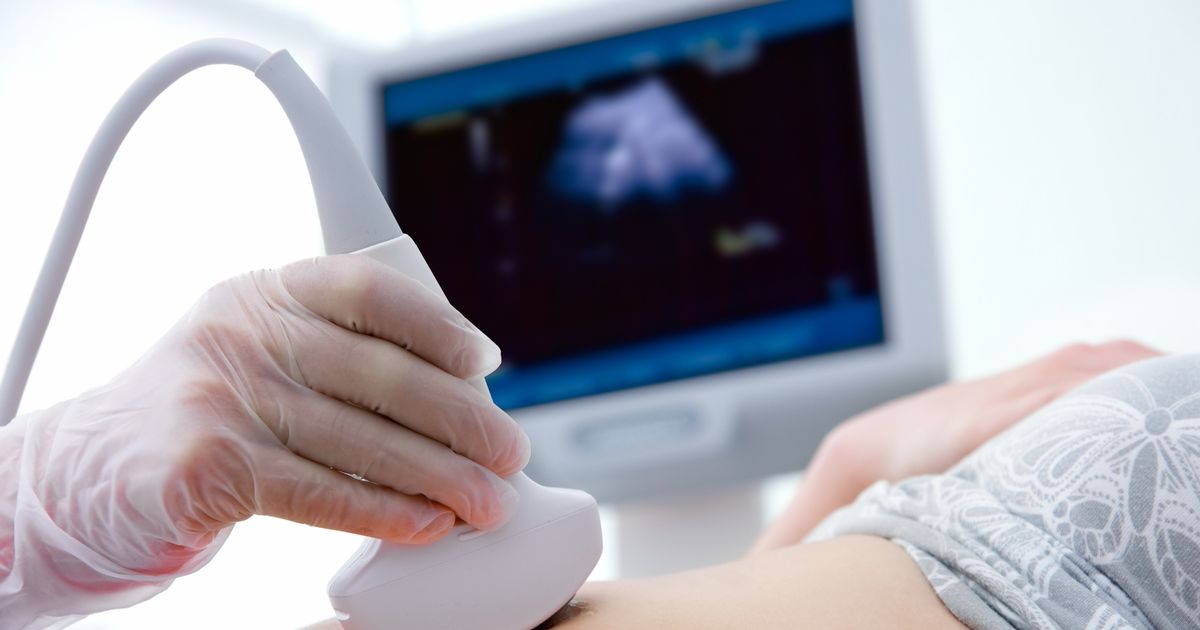For some, watching their chances of having a baby cut would be ‘absolutely gutting’ – but health bosses admit ‘funds are tight’, saying one chance is better than none at allHelena Vesty NHS, social care and patients reporter and Rhys Hanson
13:28, 29 Jul 2025
 The number of IVF cycles available on the NHS in one part of Greater Manchester could drop from three to one(Image: Getty Images/iStockphoto)
The number of IVF cycles available on the NHS in one part of Greater Manchester could drop from three to one(Image: Getty Images/iStockphoto)
This is the final chance Greater Manchester residents will get to have their say on a major change to one NHS ‘postcode lottery’ still in force in the region.
Today (July 29) is the final day of a public consultation into IVF treatment.
The number of NHS-funded IVF cycles in one borough of Greater Manchester could drop from three cycles to one. In three other areas, the number of cycles could be reduced from two to one.
For some, watching their chances of having a baby be slashed by two thirds or by half would be ‘absolutely gutting’.
Greater Manchester health bosses say they are trying to end the postcode lottery and end inequalities.
But they also added ‘funds are tight’, and they ‘have to be as sensible as we can with the taxpayer’s money’ to prevent IVF being stopped on the NHS in Greater Manchester completely.
Never miss a story with the MEN’s daily Catch Up newsletter – get it in your inbox by signing up here
Three cycles of in-vitro fertilisation (IVF) are currently on offer for those who live in Tameside, while two cycles are available in Salford, Wigan, and Stockport.
Much of the rest of the country, including the other six boroughs of Greater Manchester – as well as Oldham, where the first IVF baby Louise Brown was born in 1978 – offer one cycle free to patients on the NHS.
Last month, former IVF patients spoke to the Manchester Evening News, including a new mum who was only entitled to one cycle of IVF. She said that getting just one chance at having a child can make the pressure ‘absolutely horrendous’ in a process that is already a ‘minefield’.
The Manchester IVF patient said: “I know the NHS doesn’t have endless purse strings, but speaking from personal experience, it would have made a massive difference [to have more than one cycle available].
“On the surface of it, some private providers appear to offer you one round for around £3,500 – but it’s incredibly misleading because there’s hidden costs in lots of scans and tests to see which medications you need to be on.
“By the end of all that, it was looking more like £10,000 per round. For so many people, that’s just not an option.
“If you were in a trust that offered three rounds and were just starting off to be told you’d have those chances cut to one round, it would be absolutely gutting.
“We knew from the start that we would just have the one round that was on offer. I’d definitely feel different if I had three rounds in front of me and then it was cut to one. Going from trebling your chances to just one round is hugely different.”
 (Left to right) Gynaecologist Patrick Steptoe, embryologist Jean Purdy and physiologist Robert Edwards at the birth the first IVF baby, Louise Brown(Image: Copyright Unknown)
(Left to right) Gynaecologist Patrick Steptoe, embryologist Jean Purdy and physiologist Robert Edwards at the birth the first IVF baby, Louise Brown(Image: Copyright Unknown)
The region’s NHS is now encouraging people to take part in a six-week public consultation about the proposed changes – which include one full IVF cycle to eligible women aged 39 and under, along with an additional attempt known as a ‘1+’ round if the first cycle is cancelled or abandoned.
Greater Manchester’s NHS claims this is to create an ‘equitable’, ‘consistent approach’ that’s ‘fair for everyone’ across the city-region – saying it is fairer if all patients going through IVF get the same offer.
Claire Connor, the director of communications and engagement at NHS Greater Manchester told Greater Manchester’s joint health scrutiny committee on June 17: “At the moment, it is a bit of a postcode lottery depending on where in Greater Manchester you live as to how many cycles you’re entitled to, funded by the NHS.
“Obviously that’s not something that we want in Greater Manchester, we want to reduce inequalities, we want to make sure everyone has equal and fair access.”
Ms Connor told councillors how there has been ‘extensive work’ over ‘years’ to ‘drill down the feasibility of one cycle, two cycles, three cycles, bringing in clinical input’. The work has involved ‘people that have experienced IVF themselves, been through it or have close links to it’ to refine the options.
“At the end of the day, funds are tight,” said Ms Connor. “We’ve just got to be as sensible as we can with the taxpayer’s money, and make things as fair as we can.”
Jennie Gammack, NHS Greater Manchester’s programme director for sustainable services, told the meeting that ‘it has come down to affordability’ amid huge demands in the region for elective procedures, cancer care and urgent care, costing millions.
“We’ve got to manage all of our health resources within an envelope and we’ve only got a finite amount of resource,” said Ms Gammack.
“What we don’t want to do is decommission services, so we don’t provide IVF for anybody.
“We’ve felt that, [with] the work that’s been undertaken around the pre-consultation, [this] is the best option for our citizens right now, but that’s not to say obviously in future years we wouldn’t look at increasing the cycles.
“Particularly in Tameside, [where there’s three cycles on the NHS], it’s important we do engage those citizens to make sure that they understand the impact of that.
“Wigan offers two cycles – so we’ve had this real inequity in terms of service provision for years
“While it obviously won’t be palatable to some, we’re hopeful of the fact that we’re not going down a ‘we’re just not commissioning IVF,’ [which would mean] people would then have to look at privately funding or self-funding themselves. It’s a means to not doing that…
“One [cycle] across the board now that’s better than none across the board.”
Join our Family WhatsApp group HERE
NHS Greater Manchester, which plans and pays for the region’s health services, says the ‘inconsistency stems from historic commissioning arrangements’.
The National Institute of Health and Care Excellence (NICE), which makes recommendations to the NHS about what care it should give to patients while ensuring the best value for money for the taxpayer.
NICE recommends people should be able to get three IVF cycles on the NHS, but the number of cycles that are actually on offer is at the discretion of local NHS organisations that run the services for their geographical areas.
NHS Greater Manchester continued that one-cycle proposal comes because ‘this is the current policy in the majority of Greater Manchester, meaning no change for most residents; and it aligns with offers in most other parts of England’.
Katherine Sheerin, chief commissioning officer at NHS Greater Manchester, said: “We know that fertility is a deeply personal and often emotional topic, which is why this consultation is so important. We want to ensure that everyone has the chance to contribute to the conversation about how these services are delivered fairly in Greater Manchester.
“Whether you’ve had experience with IVF, are considering fertility treatment, or simply want to share your perspective, please take part and share your views.”
The consultation has been running from Wednesday, 18 June to today, Tuesday, 29 July 2025. You can take part by completing the online survey found on this website, attending one of NHS Greater Manchester’s local workshops or focus groups, or by contacting NHS GM to request information in a different format or language.
The consultation is not proposing changes to the eligibility criteria or the current offer of one cycle for women aged 40-42, which follows national guidance.
A report summarising the feedback will be published to make the final decision, which will be made at a public NHS Greater Manchester board meeting later this year.
Email: gmhscp.engagement@nhs.net
Text/call/WhatsApp: 07786 673762
Freepost: NHS Greater Manchester Engagement Team, Chorley Road, Swinton, Salford, M27 5AS

